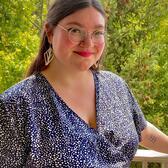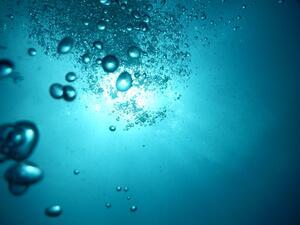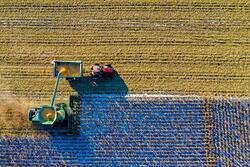Mikveh and Water Justice
What do you think of when you hear the word mikveh? Transition? Body? Holy? Water? When I think about the ritual bath Jews have been using to mark transitional life moments for centuries, my mind certainly doesn’t jump to climate justice or ecofeminism. But perhaps those ideas should be part of our mikveh lexicon.
Being a mikveh guide at the Adas Israel Community Mikvah in Washington, D.C. has been a gift. I have witnessed the conversions of infants, women immersing after divorce, birthday celebrations, niddah (menstrual separation) rituals, and more. My guiding experience has shown me that there is a sacredness in the seemingly mundane. Every moment, and every drop of water, can be made holy if we take the time to honor and protect it.
Mikveh practice has blossomed exponentially in the last few decades, with a multitude of progressive mikveot opening across the country as more people look for non-traditional, creative reasons to immerse. This progress is a good thing. It has expanded our collective notions of what it means to practice traditional rituals. The mikveh can be a site of healing. It can be feminist. It can be silly. And it can serve as an important reminder that we cannot separate our most sacred rituals from the world around us.
Mikveh is about more than simply honoring our bodies and the transitional moments that bring us to the water. It’s also about honoring the water itself. And as water becomes increasingly scarce, it’s our job as Jewish women to protect it. Without water, we cannot sustain life or do the most basic, human activities such as bathe, cook, or clean. So how can we, in good conscience, treat this precious resource without the utmost respect when we use it for spiritual purposes?
Water is holy in Judaism, and it’s also a finite resource. As temperatures across the globe continue to rise, water evaporates faster, glaciers melt, and sea levels rise. As the climate crisis increases in tenor, we cannot look away.
Instead, let’s look to spiritual leaders and take our cues from them. The Water Protectors, a woman-lead movement that protested the Dakota Access Pipeline have stood up for Indigenous people’s rights and the sacredness of the Earth. Or the mothers of the children of Flint, Michigan who still don’t have clean water and persistently remind those in power of the necessity of clean drinking water.
Let’s also turn to sacred Jewish texts to fully realize that protecting our earth is a religious and moral imperative. Genesis 2:15 explains that it is our duty as citizens of the earth to care for and protect it: "The human being was placed in the Garden of Eden to till it and to tend it." Though we have been commanded to care for our planet (one of the very first things humans were commanded to do!), we have done an exceptionally poor job of doing so.
Leaders from all ends of the religious spectrum have called on us to pay attention to climate change, from Orthodox Rabbis to Reform. All Jews can agree that we were given this Earth as a gift to love and care for. We already experienced one flood of Biblical proportions. We don’t need another.
Water has been a tool for spiritual transformation for the Jewish people and it is our turn to protect it. Without it, the Judaism I know and love would cease to exist. I am a mikveh guide. And I am an ecofeminist. The two are deeply interconnected and I cannot practice my Judaism without my ecofeminism. I am called not just to honor the moments of transition and the people who enter the waters of the mikveh, but the water itself.








Your point is excellent! I would also like to add that the water and land where a mikvah is located was originally taken care of by the indigenous peoples that were here before us. Mikvah can also be an opportunity to explore stewardship as it relates to social justice and varying concepts of ownership. There are progressive mikvahs that include indigenous land acknowledgements as part of their communication materials as a first step.